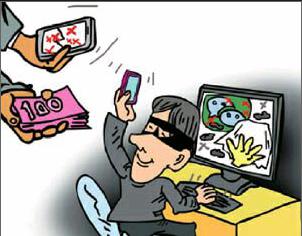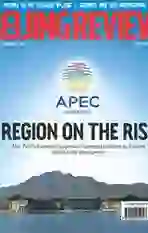Regulating the Sharing of Information Online
2014-12-01

In cases of everything from finding hit-and- run drivers to pinning down corrupt officials, Chinese Internet users have taken to sharing an image or information online in attempts to ferret out wrongdoers. However, because such search practices, known as “human flesh search,” may cause harm to the people in question, guilty or otherwise, the individuals providing the information must take legal accountability. Chinas Supreme Peoples Court(SPC) has recently issued a new regulation on cyberspace privacy protection, clarifying how to deal with civil disputes caused by infringements on personal privacy through the Internet.
Many say these changes are both necessary and timely. The irresponsible sharing of individuals private information on the Internet can lead to unexpected consequences. In extreme instances, there has developed a black market industry, where people post incorrect information and demand payments to delete these online posts. Such practices breach the bottom line of the law.
yet some argue that stricter restrictions on information-sharing on the Internet damages freedom of speech. Sometimes, by exposing personal information on the Web, the public is able to “out” corrupt officials; thus, the new regulation may work to make such discovery and detection impossible. Excerpts from commentators weighing in on the debate follow:
Privacy protection
Guo Xiaoran (www.people.com.cn): Cyberspace makes it possible for information to spread fast in our society—including rumors. The so-called human flesh search engine, also known as “Internet vigilantism,” can easily be taken advantage of by ill-intentioned people. Thus, this practice can be very harmful to individuals and society as a whole.
It is likely that the person who came up with the human flesh search engine scheme did not envision the negative impacts this system of information sharing could have on others. If it is used for nefarious purposes, the consequences are uncontrollable. Searches may be conducted on the Internet, but their impacts happen in real life.
The SPCs new regulation will undoubtedly protect people from privacy infringements and restrict Internet userscapabilities to exact revenge on others by exposing their private information on the Internet. However, the problem now is how to define the human flesh search engine and separate it from other kinds of illegal behavior. Chances are that abuse of this system is intertwined with other illegal practices.
The implementation of a new regulation allows the judicial system to meet various future legal challenges. We must be fully prepared to manage difficulties that arise due to a lack of legal standardization of cyberspace activities.
yang Guangzhi (www.cqnews.net): Its often said that the human flesh search engine is a double-edged sword. This new regulation has set up a basic framework through which to rein in the bad practices allowed by the system while expanding its positive influence. To expose ordinary peoples trifling private issues on the Internet by these means, however, regularly leads to two unfortunate results.
First, the individuals small mistake is amplified across the Internet, inviting ridicule and criticism from others online. This sort of online“ganging up” has thus far been totally uncontrollable. The second result is that the person can be taken advantage of by the threat of having his or her private information plastered everywhere, and thus may fall victim to the demands of blackmailers. In this instance, the human flesh search engine has simply become a tool to commit crimes.
The conflict that exists between the human flesh search engine and citizens privacy is in essence the conflict between citizens freedom of speech and the protection of individuals. There should be a process through which to coordinate goals and compromise on checks and balances so as to finally find a legal way to cope with such conflicts.
The human flesh search engine, on the one hand, benefits society through extensive Internet coverage of wrongdoing; on the other hand, this extensive coverage can also create irreversible damage if used improperly. This powerful information tool has long been operating freely without any authoritative or legal supervision. The more power it gains, the more serious issues it creates. Therefore, legal guidelines must be put in place.
Online supervision
Si Ershan (www.cjn.cn): Given the increasingly rapid development of network technology these days, many people choose to share their sentiments on the Internet. Posting and sharing whatever they want via various websites like blogs and forums, most users have little or no sense of personal privacy protection. Unfortunately for them, there are also many “curious” Internet users, who manage to probe into other individualsprivate information. As a result, in less serious cases, the victim is plagued by all kinds of thorny issues, while in more serious cases, victims have even been driven to death.
For quite a long time, such privacy infringements have continued free of legal interference due to the lack of formal regulations or laws in place. The formulation of the SPCs latest regulation is thus a very important supplement to current laws concerning Internet use, and ordinary people will now have methods through which to counter pri- vacy breaches in cyberspace.
Cyberspace, though, is a complicated platform, where the price for infringing on othersprivacy may not be so high, and where its also difficult to collect sufficient evidence of privacy infringement. Therefore, despite regulations, such issues will long remain difficult to solve.
Its important to note, too, that there must be certain differences between the protection of private information of government officials and of ordinary people. Authorities privacy is supposed to be subject to the publics supervision, to some extent. This is important for the maintenance of a “clean” government. Celebrities may also have to make compromises when it comes to the disclosure of some of their personal information.
As for ordinary netizens, its necessary to learn more about how Internet companies operate in order to guard against the risks and consequences of personal information exposure online. We must all work to reduce the prevalence of online privacy infringements.
le Hongfeng (Peoples Daily): Who is to be responsible for the anonymous posting of individuals information on the Internet and the spreading of rumors? How can you fight back against Internet mercenaries if your private information or home address is posted on the Web? Thanks to this new regulation, theres hope that some of these problems can finally be addressed.
However, there are also opposing voices, claiming that the new regulation will put a stranglehold on online freedom of speech in the name of privacy protection. They say that the human flesh search engine is useful in revealing evidence of bribery and corrupt government officials. If personal information cannot be posted on the Web, how can the public supervise these public servants?
Indeed, the supervision of government workers on the Internet is an important part of anti-corruption efforts. However, this does not mean that freely infringing on anyones personal information should be allowed or tolerated.
Anti-corruption charges require hard evidence to support the accusation. Its unacceptable to irresponsibly post so-called“evidence” casually on the Internet, causing untold grief to the “exposed” person in question. A distorted fact is not as easily cleared up as the truth.
Thus, the most effective way to prevent the abuse of individuals privacy in cyberspace is to increase punishments for law-breaking activities. With the new regulation being put into place, Web users must remember to use caution when posting information online.
In China, a country trying to improve its rule of law, freedom must be practiced within a certain legal framework. The punishments for online privacy infringements are actually the best protection for freedom of speech. In the Internet era, while enjoying the convenience of obtaining information, people also risk having their information misused. Therefore, there must be a legal bottom line, serving to protect all Internet users privacy.
Similarly, those who are involved in the gray area of illegally deleting information can now be held accountable for their misdeeds. The regulation states that anyone who prevents others from obtaining information by asking a company or individual to delete posts should be held responsible, and the deleted information may be reinstated.
